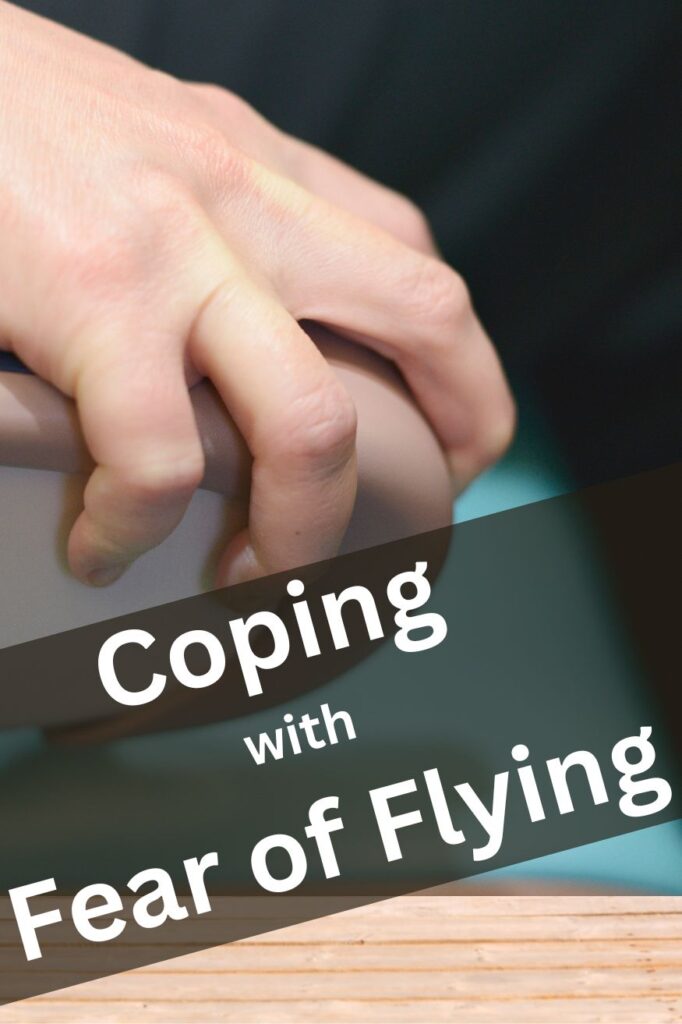Nowadays, with ever-present smartphones, fewer people carry wristwatches, but for those who still do, the process of winding backward or forward our watches after a long flight remains a strange and unsettling experience.
Our internal circadian rhythm dictates to us what time it is, and if we force a different time on it, we often end up not only tired but also confused, irritable, unable to sleep, and sometimes with stomach issues. This is the dreaded jet lag, which, more often than not, ruins the first few days of our already brief stay in a new country.
There are several things that can be done to avoid, or at least minimize, this rattling of our internal clocks, and in this post, I will go over several of them. We can prepare before the flight, tackle future issues while on board, and acclimatize to the new schedule when we arrive at our destination so that we will not feel so out of sync with the world around us.
Be sure to check out also this post on how to minimize the hassle and discomfort of long-haul flights
How do you get rid of jet lag fast?
The tl;dr; can be quickly summarized as follows:
- Adjust your schedule to the new time zone as soon as possible.
- Don’t compare to your old time zone.
- Sleep and eat at your new local time.
- Use natural light first and other lights as needed to adjust to the new schedule.
- Drink lots of water and eat healthy food to keep your energy high.
- Try melatonin and sleep aids as needed.
- Use caffeinated beverages as needed.
What is jet lag?
Jet lag occurs when you travel across multiple time zones on a long-haul flight. A long flight will often leave you tired and dehydrated, but that is relatively easy to get over with a good night’s sleep. Jet lag instead is not simply feeling tired; it messes with your body’s circadian rhythm – its internal clock.
Our circadian rhythm regulates our sleep-wake cycles, and by disrupting it, we end up with difficulty sleeping, which can quickly become the cause of several other physical disturbances. The circadian rhythm also influences several other physiological processes. That is why, when affected by jet lag, we might experience stomach issues, such as difficulty eating, nausea, a lack of concentration, and mental sluggishness.
There have been studies claiming that for every hour of time difference, it takes two-thirds of a day to adjust for eastbound flights and half a day for westbound flights.
Where is jet lag worse?

Jet lag affects us every time we cross multiple time zones, but there are some situations when it is worse. For example, flying eastbound is worse for jet lag than flying westbound.
For most people, circadian rhythms are not exactly synchronized with the 24-hour day but extend slightly further. That is why most people don’t have much trouble staying awake longer after dark, but we suffer more from waking up earlier, regardless of whether someone considers themselves an early bird or a night owl.
Flying west is therefore less impactful because it essentially prolongs our day. We can cope better with flying with the Sun and accumulate the hours of a long journey under our belt. It will clearly make us tired but less desynchronized.
On the other hand, flying east greatly shortens the day which leads to all sorts of confusion. Regardless of the time of day of arrival, either at the destination or during the flight, you will be forced to sleep much sooner than you would on your normal schedule (just think of an 8-hour flight, to a destination with +8 hours on your departure time: you will find yourself with 16 hours difference on the first day, probably needing to go to bed and eat at wildly different hours, while at the same time having had a short day relative to your departure location).
Mitigating jet lag
General tips
Align to the new schedule and never look back. First things first, avoid reminding yourself, “It’s really xx time back home.” Jet lag is a battle with your internal clock, which is already reluctant to change as it is. Don’t give it more ammunition than it already has and forget the old ways and times; there is just local time now. Get used to it.

Apps can also be useful for this. The most popular is Timeshifter, a sleep optimization app designed by sleep specialists and astronauts to help travelers adjust their body clocks to different times and locations. It provides personalized jet lag plans, suggests optimum sleep windows, and provides personalized alerts to help people stay on schedule.
Hydrate, hydrate, hydrate: This is the most important thing to watch out for on long flights, as it helps with the cold and dry air cabin and aids your body in dealing with changes to altitude and pressure. Water is useful though when combating jet lag, as it helps with lack of sleep and mitigating stress. Jet lag is taxing on our bodies and we need energy to cope with it, so the more hydrated we are the better. This also means avoiding alcohol. As much as a drink can help with sleeping on board, as it has a stronger effect on us at altitude, it also dehydrates you and can quickly lead to headaches and a hangover, which is definitely not the best thing to add to jet lag.
Use light: It comes as no surprise that an internal clock that regulates our sleep-wake time is based on the perceived day-night cycles. We can therefore trick it, or assist it, in adjusting itself by managing our exposure to light. The main actor here is clearly the sun, but artificial light (and the dreaded blue light from smartphones and computer screens) can also help. The most effective way to align to the new schedule is to take in as much daytime as possible at local time. It will help you forget the old schedule.
Before the flight
There are several things that can be done before the trip to minimize jet lag on arrival, and they are all related to altering our schedule beforehand, making it closer to the one we would have at our destination. Often, it is not possible to align perfectly, but preparing a week before or even a few days before the flight goes a long way toward giving our internal clocks the time they need (pun very much intended) to slowly adjust.
Adjusting our schedule means primarily two things: changing our sleep and meal habits.
Sleep
Try to go to bed an hour earlier (if flying east) or an hour later (if flying west) every day. While you may not sleep, going to bed is a powerful cue to our internal clocks.
Because our circadian rhythms are primarily influenced by sunlight, if you wake up early, try to go outside and get some sunlight. If there is no sunlight yet, use artificial light in the house. Contrarily, if you are extending your schedule, reduce light early in the morning, and extend it later at night, almost like creating your own personal in-house casino. The general idea is to have a light that matches your future schedule, even if you are forcing an unnatural time when preparing for the flight.
Meals
Our meal schedule is influenced by our circadian rhythms, but this is also the other way around. So similarly to going to bed earlier or later, eat meals earlier or later. Also here, the idea is to match your future schedule.
Fasting: For many people, fasting the day before is a good way to synchronize with local time and sort of gives them a reset of their meal schedules. The day before your flight, try to be on the schedule of your destination and if it is not breakfast, lunch, or dinner time, avoid it altogether.
Eat healthy: this is more related to coping with the stresses of the long flight rather than jet lag itself. Try to eat clean the day before (and after) to improve your immune system and keep your energy high. For example, avoid alcohol, keep sugars low, and eat food that gives you a lot of hydration.
On the other hand, if traveling east, where the objective is to get as much sleep as possible on board, it is better to land earlier so that you will not find yourself having to go to sleep shortly after you land.
Children

To understand how important our sleep rhythms are to us, we need to look no further than babies and the little demons that they become when their schedule is changed.
In the case of babies, there is no silver bullet. Long flights are a shock for infants, regardless of jet lag. They are out of their comfort zone, are more susceptible to the boredom of remaining still in the seat, and their ears are more sensitive to pressure changes (in fact, crying and screaming is a natural way to equalize pressure in the ears since they can hardly close their nose and compress to make their ears pop). It can be useful to adjust the baby’s schedule as well, but only a few days before and not a whole week prior. But it can also be detrimental to alter the babies’ schedule and is really a case-by-case thing.
For older children, instead, it is best to adjust their schedule as you do with your own. This could be made into a game, with treats and activities that are done in the new, non-sensical times.
On the plane
Sleep
On the other hand, when flying west, it would actually be preferable to not sleep on board and just have this awful, tiring flight, remain awake at your destination, and go to sleep at the correct local time. In this case, it is preferable to find a flight that lands in the afternoon or evening so that you will not have a full day ahead of you when you land.
Meals
Eating light: In general, for long flights, it is better to avoid fatty proteins, salty or heavy foods, or any kind of food that you know weighs you down. The objective here is to not have your energy drained or feel drowsy. Instead, opt for lean meats like fish or chicken, complex carbs, and other low-glycemic foods. Also, opt for foods that hydrate you, such as fresh fruits and vegetables (cucumbers, celery, strawberries, watermelons, etc.).
That being said, depending on whether you want to sleep or not on the plane, you can use meals to aid in that. Carbohydrates get the body ready for sleep, while protein has the opposite effect. So if you’re heading east, stocking up on carbs on the plane might help you get to sleep. Conversely, if you’re heading west and need to stay awake for a long day, it may be wise to go easy on the airline bread rolls.
If you are flying westbound, where it is recommended to not sleep on the flight, you will feel very tired on arrival and will have to make it through the day. Here, coffee can be a lifesaver. If flying eastbound, avoid coffee or tea on board, as you should try to sleep. In any case, remember the importance of that first night’s sleep on arrival, so, for example, don’t have a coffee late in the evening.
These suggestions, though, are for people who don’t abuse coffee in general. Many people who are used to drinking lots of coffee can experience actual withdrawal symptoms without caffeine, leading to strong headaches and becoming very, very, very irritable. In this case, although it might technically not be a good choice, it depends on your habits, as being completely out of sync with the world because you don’t have your coffee is worse than jet lag.
On arrival
Sleep
The most important thing is to remain awake until it is local time to go to sleep. Don’t stay in the hotel though, and instead go for a short walk, trying to get that sunlight and acclimatize your body to the new timetable.
Regardless of whether you slept on the plane or not, on the first day, you will probably feel tired from the long-haul flight, so don’t plan any big activities or sightseeing expeditions and instead opt for a short city walk.
On the first night of sleep, you will also probably awaken very early. As mentioned elsewhere, look for that sunlight and have a good, healthy breakfast (at the right time).
It’s okay to take a nap on arrival; just be sure that it is a couple of hours tops and not a full 8-hour sleep. Set alarms. A good idea is also to have a cup of green tea before your nap to avoid having a deep sleep.
Exercise is also helpful to remain awake, as it blocks the production of melatonin, the sleep-promoting hormone.
Finally, caffeine can help a lot here; just take into account the local time and avoid that double espresso at 7 pm.
Meals
Even if we are careful about our sleep schedule, we don’t have that much control over how much we are going to actually sleep the first night. We can, however, easily control when we eat our meals. As mentioned previously, this goes a long way toward regulating our circadian rhythm to the new local schedule.
You should now be following the local time precisely, and this means that if you land late at night and feel hungry, you should go to sleep hungry since this would not be a normal dinner.
Supplements and medication

No matter how well we prepare or how cozy we make our flight to try to sleep, chances are that for a couple of days, we will not be having a great night’s sleep. Medication can clearly help here, and sleeping pills obviously work; however, these do not modify our natural sleep cycles and simply make us unconscious.
Melatonin instead, is much more helpful, as it is the hormone directly responsible for our sleep-wake cycles. Our body naturally produces melatonin, and supplements have much more than we need. If you want to give your body a hard reset, you can take an entire 1mg pill, but even splitting it into quarters would still give plenty of melatonin.
Another option is to eat foods that are known to have beneficial effects on your body’s ability to sleep, such as warm milk, eggs and toast, whole grain oatmeal, fish, bananas, cherries, and goji berries, which are rich in melatonin.
As mentioned earlier, it is important to keep your energy levels high so that your body can cope with jet lag more efficiently. Long-haul flights are hard on the immune system, so some other supplements, not directly tied to sleeping, are useful for keeping your system in good condition. Vitamin C, for example, is critical for the immune system, and Vitamin D can also be extremely useful, especially if traveling to a northern country where there isn’t a lot of daylight, so that you can compensate for that lack of important sunlight.





